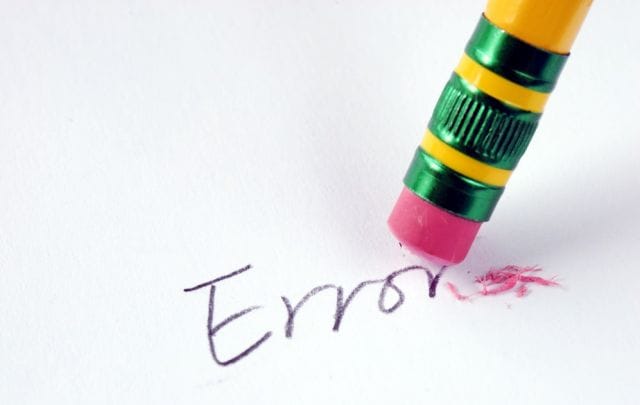Episodes: The Corrections

So a couple of years ago, I made a typo. It wasn't the world's worst typo – I just switched an actor's first name for the character they played. And because I kept very weird hours back then (often going to bed at 6 am and then waking up in the mid-afternoon), it was up for quite some time before I was able to fix it. But, again, on the scale of errors, this was a relatively minor one.
Of course, when you're a journalist, you like to have somebody point out these little boneheaded mistakes you make, because then you can fix them if need be. And the internet makes that easier, since people can just contact you on social media, or via email, or in comments. Then you can make the fix, and that's that. This is about as unambiguous a reader interaction as you can have, right?
Maybe you can see where I'm going with this, because I've talked about this before. Because that mistake was up for quite a while due to my schedule, I got correction after correction after correction -- 27 in total, via email and Twitter and comments. And this was not one of my better-read recaps, like Game of Thrones or Mad Men. It was a smaller show that didn't have nearly as much readership.
The point is that when I read through those 27 corrections, I didn't feel like they were coming from a place of wanting to genuinely help me (even though they were), but, rather, from a place of trying to gang up on me. And, again, this is an honest attempt by readers to help me right a mistake that required fixing. Just one or two of them, and I might have felt embarrassed, instead of bristly. But pile enough of these on top of each other, and a little bristling is almost inevitable.
Now, of course, I got over it. It was my mistake. I made the fix. I thanked those who caught the mistake. I moved on. It was a small mistake, and the "pile-on" quickly resulted in the right result. But what happens when the pile-on is talking about something more ambiguous, or something that isn't wrong but might seem wrong on a quick reading?
This is the thing about internet response times. To everybody on one end, it's a conversation between them and the writer. To the writer, it's a conversation between them and 27 different people, who are all saying the exact same thing, which ends up seeming like a shout. So when you ARE writing about something popular, and when you express an opinion a small percentage of your readers disagree with, it can start to feel like the world is yelling at you.
This is probably unsolvable, too. The accidental imbalance in favor of the reader (in this one particular instance) means that literally anything can flare up and create this sense of hostility in the writer, which can then boil over.
Certainly, you build up a tolerance to this. I rarely get too upset about honest mistakes now, because honest mistakes need to be fixed, and I've been around this particular road several times. But dozens of people all tweeting at me that if I think Ramsay Bolton is a one-note villain, that must mean I should go and watch My Little Pony (or something), still gets the goat up.
Again, I don't think this problem is solvable. It's not even always a problem. But it is, I guess, a plea to take two seconds to check to see if dozens of other people have already told the person you're going to chat at the exact same thing. You, too, may save someone's blood pressure.
--
Episodes is published at least three times per week, and more if I feel like it. It is mostly about television, except when it's not. Suggest topics for future installments via email or on Twitter. Read more of my work at Vox Dot Com.



